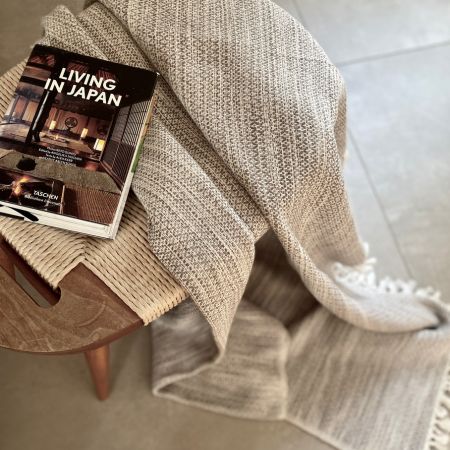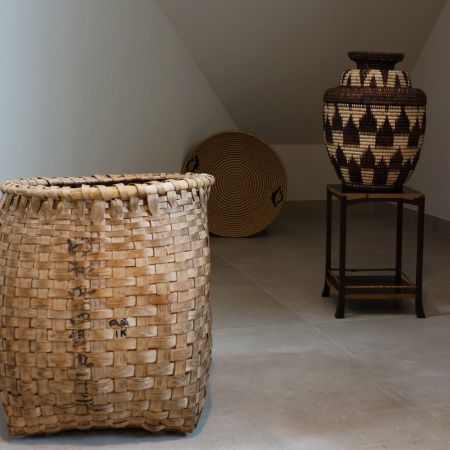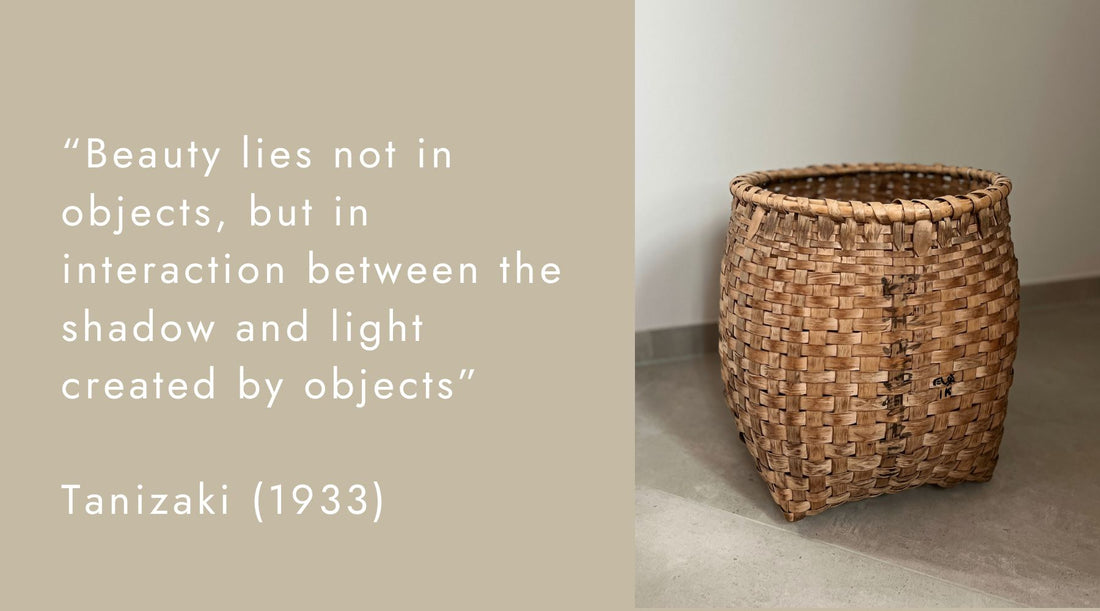Dear Beloved Kaikô Community,
I hope this blog finds you well.
Today, I'm thrilled to explore the timeless philosophy of Wabi-Sabi, a guiding light that shapes every facet of Kaikô's selection process. Raised in a Japanese Buddhist household, Wabi-Sabi infused every aspect of my childhood. This profound philosophy continues to inform my curation at Kaikô, where I am dedicated to sharing its aesthetic, cultural, and philosophical depth with you. At the end of this blog, you will understand why the Wabi-Sabi philosophy is also woven into the handcrafted pieces from Cambodia and Rwanda that we offer, and why their presence is essential.
What is Wabi- Sabi?

Wabi-sabi, derived from two Japanese terms, encapsulates a profound appreciation for beauty. "Wabi" cherishes the spiritual richness found in simplicity and modesty, fostering contentment with what one has. Meanwhile, "Sabi" celebrates the beauty of ageing and solitude, recognising the allure of weathered objects. This philosophy embraces imperfection and impermanence, finding solace in life's simplicity.
Consider the changing colours of autumn leaves or the aged patina of a bamboo basket; these are manifestations of the essence of "Sabi." At its core, Wabi-Sabi inviting joy and fulfilment from life's ordinary moments and the inherent beauty of what simply exists.
In essence, Wabi-Sabi represents the acceptance of imperfections, acknowledging nature's inherent flaws, and embracing the transient nature of life. It extends beyond aesthetics to our daily interactions, fostering acceptance of differences, respect for others, and mindfulness in our actions.

"Beauty lies not in objects,
but in interaction between the shadow and light created by objects"
In every Kaikô product, whether handmade in Japan, Rwanda, or Cambodia, you'll find this essence woven into the fabric of our creations. Our artisan women meticulously craft each item, imbuing them with respect for others and the natural world through their mindful approach. I also firmly believe that the essence of Wabi-Sabi can only be truly captured through traditional handcrafted pieces crafted from natural materials.
It is these materials that age gracefully, forming exquisite shadows that enhance their beauty. As the renowned Japanese author Junichiro Tanizaki stated in 1933, "Beauty lies not in objects, but in interaction between the shadow and light created by objects" - For a deeper understanding of the Wabi-Sabi philosophy, Japanese aesthetics, and the intricacies of thought, I highly recommend Tanizaki's "In Praise of Shadows." In this book, he eloquently contrasts Western and Japanese aesthetic sensibilities, shedding light on how they shape respective lifestyles. I would also like to add that the essence of beauty is found in the depth of history, culture, and the individuals who brought it into existence.
I believe true beauty lies in the subtle nuances that arise naturally, evolving gracefully with time, a quality uniquely embodied by traditional arts and crafts. What is more, these creations intricately weave together history, culture, and the heartfelt intentions of their creators, resulting in expressions that transcend mere aesthetic appeal.
Our discerning customers who appreciate Kaikô products are those who understand and embrace the philosophy of Wabi-Sabi. They recognise the beauty in imperfection and find joy in life's simple pleasures. They accept differences and respect for others. No matter one's upbringing, the cultural aesthetics and nuances Tanizaki articulated are not exclusive to the Japanese; they can be discovered in any nation, contingent upon one's perspective. We're honoured to be connected with such cultured individuals and be a part of their journey and to expand this cherished circle of appreciation.
Likewise, the cultural aesthetics and nuances Tanizaki described are not exclusive to Japan; This perspective is the inspiration behind KAIKÔ - to introduce the beauty of traditional arts and crafts from Rwanda and Cambodia, crafted by mindful and respectful women artisans. It is fascinating how our cultures have evolved in vastly different locales, yet their core values often share striking similarities. Our hope is that by offering these handcrafted treasures, we can encourage people to recognise and appreciate the commonalities among cultures and people.
In the hustle and bustle of today's fast-paced world, it's easy to overlook the beauty that surrounds us in the simplicity of everyday life. Kaikô hopes to be a platform that inspires you to slow down, set you free from the speed and prejudices of the outside world, and find beauty in the simplicity of each day with our exclusive artisan-made products.
Thank you for being a part of this extraordinary journey with Kaikô. I hope you have a nice day.
Kana, Founder of Kaikô

